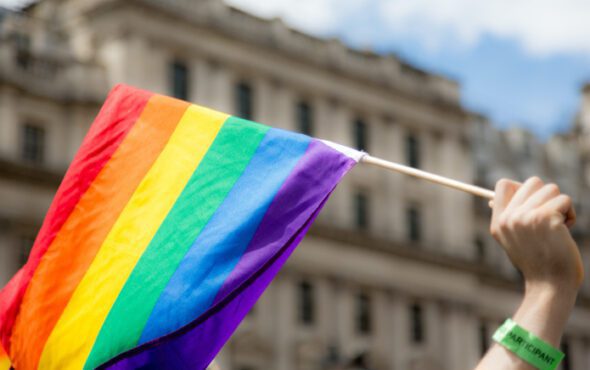
The top court in the European Union has ruled that same-sex parents and their children must be legally recognised.
On Tuesday (December 14), the Court of Justice of the European Union (CJEU) ruled in favour of same-sex parents and their families.
The case, which has had a successful outcome, arose due to Bulgarian authorities denying a newborn baby, a daughter of two same-sex parents, the right to a birth certificate. It was argued the child was ineligible for the identity documentation as she has two mothers.
Currently, the model birth certificate applicable in Bulgaria only has one box for the ‘mother’ and another for the ‘father’, “and only one name may appear in each box”.
ILGA-Europe, an independent LGBTQ+ advocacy organisation, argued Bulgarian citizen Kalina Ivanova and Gibraltar-born British citizen Jane Jones were both registered as mothers of their daughter, Sara, who was born in Spain in 2019.
Due to the United Kingdom British Nationality Act of 1981, Jones was unable to transfer her citizenship to her daughter. This left the parents with the final option of applying for Bulgarian citizenship for their daughter, according to ILGA-Europe.
However, Bulgaria rejected Sara’s claim for citizenship due to her parents’ same-sex relationship.
Per the CJEU ruling, Sara will not need to be issued Bulgarian identity documents, but all member states must “recognise that parent-child relationship in order to enable [the child] to exercise, with each of her parents, her right of free movement”.
“That refusal could make it more difficult for a Bulgarian identity document to be issued and, therefore, hinder the child’s exercise of the right of free movement and thus full enjoyment of her rights as a Union citizen,” the court ruling states.
Bulgaria must recognise Sara’s Spanish birth certificate and both of her mothers as her parents, the European Union top court ruled.
“The judgment has brought long-awaited clarification that parenthood established in one EU Member State cannot be discarded by another, under the pretence of protecting the ‘national identity,” said Arpi Avetisyan, litigation head at ILGA-Europe.
“We are thrilled about the decision and cannot wait to get Sara her documentation and finally be able to see our families after more than two years,” Sara’s parents said of the ruling, according to the advocacy group.
“It is important for us to be a family, not only in Spain but in any country in Europe and finally it might happen. This is a long-awaited step ahead for us but also a huge step for all LGBT families in Bulgaria and Europe,” they added.



